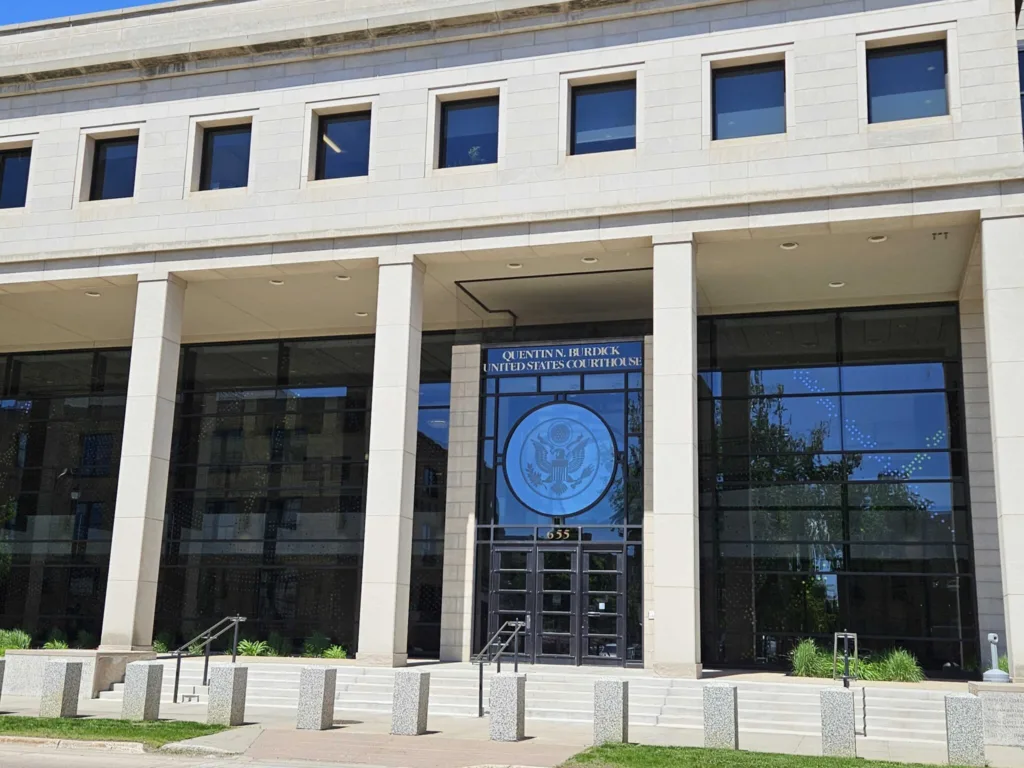

By: Mary Steurer (ND Monitor)
A North Dakota federal judge has ruled that the U.S. Department of Health and Human Services and the Equal Employment Opportunity Commission cannot force a group of Catholic employers to administer or pay for gender-affirming medical care.
The case concerns two rules published by the federal agencies. The Department of Health and Human Services rule bars businesses that provide federally funded health programs from withholding medical care to someone just because they are transgender. Doing so would violate an anti-discrimination provision of the Affordable Care Act and Title IX of the Education Amendments of 1972, the rule states.
The lawsuit also challenged a similar rule published by the EEOC implementing Title VII of the Civil Rights Act of 1964, which outlaws workplace discrimination for employers with more than 15 employees. The rule holds that such employers cannot refuse to cover medical services to a transgender staff member that they would otherwise cover for other employees.
The Catholic Benefits Association — which represents Catholic employers — filed a lawsuit in U.S. District Court in North Dakota alleging the rules will force its members to violate their religious beliefs. The association said the rules could require Catholic hospitals to perform gender-affirming surgeries or a Catholic ministry to cover an employee’s hormone replacement therapy, for example. The Catholic church teaches that providing gender-affirming care to transgender people is immoral, the association states in its complaint.
The Department of Health and Human Services and EEOC defended the rules as necessary to protect Americans from gender-based discrimination, and further argued that the policies won’t harm religious exercise because employers can ask for religious exemptions from the rules on a case-by-case basis. U.S. District Court Judge Peter Welte found these options insufficient because they do not guarantee exemptions to religious organizations, leaving them “unable to predict their legal exposure.”
Welte in an order last week sided largely with the Catholic Benefits Association. Welte found that the rules violate broad protections for religious exercise established in the federal Religious Freedom Restoration Act of 1993. That act states that the government can only limit religious exercise in service of a “compelling government interest,” and must make every effort to be as minimally restrictive as possible.
Welte said that the Department of Health and Human Services and EEOC rules don’t meet these standards. The policies force Catholic organizations to decide between going against their beliefs and being subject to discrimination investigations and lawsuits, he wrote in the order.
He ruled that the Department of Health and Human Services cannot interpret the Affordable Care Act in a way that requires the Catholic Benefits Association to administer or provide insurance coverage for gender-affirming procedures. He similarly found that the EEOC cannot interpret Title VII of the Civil Rights Act of 1964 to require the association to provide insurance coverage for gender-transition procedures.
The lawsuit also challenged other protections in the rules related to abortion and fertility treatments, though Welte dismissed those claims.
The Catholic Benefits Association filed the lawsuit as a successor to a previous case it joined with other Catholic groups against the Department of Health and Human Services and the EEOC. Welte also sided with the plaintiffs in that case, though an appellate court in 2022 found the Catholic Benefits Association didn’t have standing to be part of the suit.
In another case involving the Catholic Benefits Association, North Dakota U.S. District Court Judge Daniel Traynor in April ruled that the association is exempt from provisions in two separate EEOC policies — one meant to shield workers from LGBTQ-based workplace harassment, and another that sought to protect workers’ access to abortion and fertility treatments.
Other federal judges have since issued rulings vacating parts of both rules nationwide. A federal judge in Texas in May vacated portions of the workplace harassment rule that pertain to sexual harassment and gender identity. Later that month, a federal judge in Louisiana struck down the abortion access protections.
The decisions come as President Donald Trump’s administration is rolling back services and legal protections, including by restricting access to gender-affirming care for minors and implementing a blanket ban on transgender people serving in the military. Trump signed an executive order in January establishing a two-gender policy for the federal government.